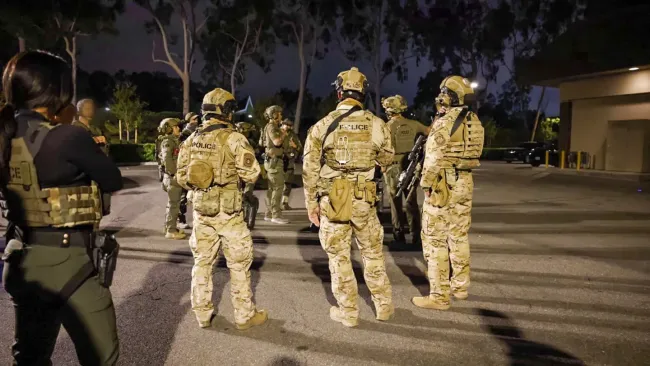How Activists Shielding MS-13 and Tren De Aragua Are Putting Our Law Enforcement at Risk
In recent months, law enforcement agencies across the United States have intensified their crackdown on violent transnational gangs like MS-13 and Tren De Aragua-organizations notorious for trafficking women and children, kidnapping for ransom, and flooding communities with lethal drugs. Yet, a troubling trend has emerged: certain activist groups are defending these criminals, inadvertently-or perhaps intentionally-putting targets on the backs of the very officers risking their lives to keep Americans safe.
The Deadly Reality Behind MS-13 and Tren De Aragua
MS-13, designated as a Foreign Terrorist Organization, operates with brutal efficiency across the U.S., Mexico, and Central America. Its members engage in extortion, murder, drug trafficking, and human trafficking, terrorizing communities nationwide. Tren De Aragua, a Venezuelan gang, is similarly ruthless, involved in kidnappings and trafficking networks that exploit vulnerable populations.
Federal agencies have made significant strides in dismantling these gangs. For example, recent arrests include high-ranking MS-13 leaders controlling operations across multiple countries, with sentences exceeding 20 years for violent crimes and racketeering1378. Border Patrol and ICE continue to apprehend gang members attempting to infiltrate the U.S., reinforcing the commitment to public safety5.
Activists Shielding Violent Criminals: A Dangerous Misstep
Despite overwhelming evidence of these gangs’ violent and destructive nature, some activist groups have chosen to defend alleged gang members, framing them as victims or immigrants deserving protection. This misguided stance undermines law enforcement efforts, emboldening criminals and endangering officers and communities alike.
By opposing deportations and law enforcement actions, these activists effectively shield traffickers and killers who prey on women and children, poison Americans with deadly drugs, and kidnap innocent victims for ransom. The consequences are clear: increased violence, public fear, and a heavier burden on police officers who face greater risks without full community support.
The Toll on Law Enforcement
Police, ICE agents, and Border Patrol officers are on the front lines, confronting violent gang members daily. When activists oppose their work, it not only hampers investigations but also sends a dangerous message to criminals that they can operate with impunity. This erosion of support places officers in harm’s way and threatens the safety of all Americans.
What Must Be Done
To protect our communities and law enforcement, it is crucial to:
- Recognize the true threat posed by MS-13, Tren De Aragua, and similar gangs.
- Support the efforts of federal, state, and local law enforcement in apprehending and prosecuting violent criminals.
- Reject narratives that excuse or defend gang members involved in human trafficking, drug distribution, and violent crime.
- Encourage community cooperation with law enforcement to dismantle these dangerous networks.
Conclusion
The safety of our neighborhoods and the lives of law enforcement officers depend on a united front against violent gangs. Activists who shield MS-13, Tren De Aragua, and other vicious criminals are not protecting vulnerable people-they are putting targets on the backs of those who serve and protect us all. It’s time to stand with our law enforcement and demand accountability for those who threaten our nation’s security and the well-being of its citizens.
